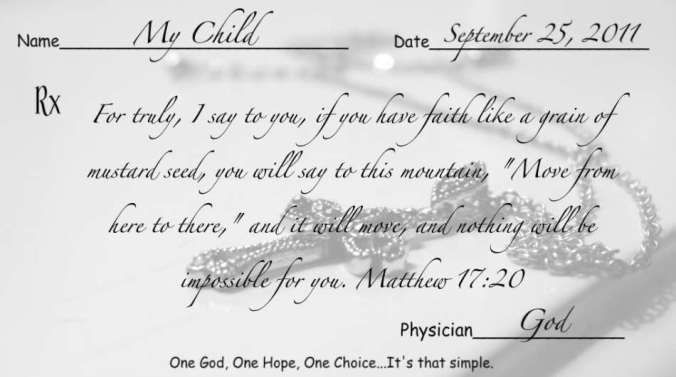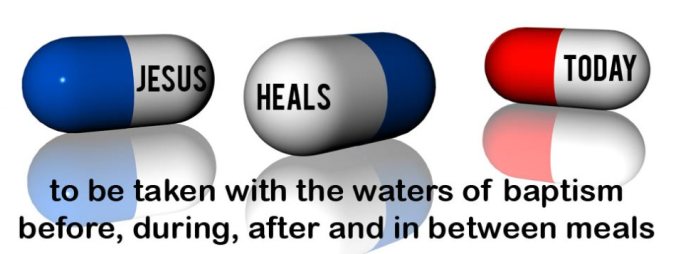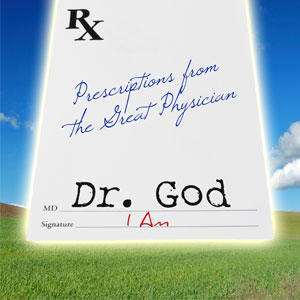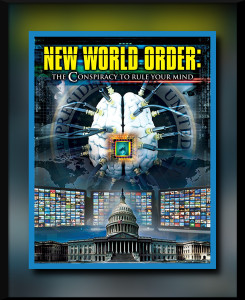Great post…
The Sun in the Firmament
Boots on the Ground
No matter how crazy this stuff may sound, this is real, folks!!
I do these kinds of articles every so often to give people an idea of what we’re up against. But, the time is very short, and I feel in my spirit that we are only one event away from a catastrophe.
Satan has his boots on the ground and his army has their boots on too.
GURPS? In your face!! Steve Jackson. At first everyone was like…what in the world is this? Now, it’s more like…he’s throwing it in your face. We are a joke to these people.
At first people saw his Illuminati game cards and thought he was on “our side” but that couldn’t be further from the truth. He’s making money at our expense…who does that sound like?
New World Order (NWO)
Govt Control-it matters not which “side” you think you’re on! It’s all the same team and you’re being tricked into thinking you count, that you…
View original post 2,045 more words
Doctor Killed After Releasing NWO Plan
Doctor Killed After Releasing NWO Plan in 1969!
A New World Order Insider Reveals Entire NWO Plan in 1969! Once this plan was released to the public decades later, I believe this insider was killed shortly afterwards with fast acting cancer as punishment for the information being put out on tape! I’ve been studying the new world order for over 20 years now and I learned a lot just by listening to these tapes. This is key information that you, your family and your friends need to know so you are prepared for what is still to come! Most people fully wake up when they hear the testimony of this doctor! It’s so obvious everything he was told was exactly right! Once you learn their plan, you’ll understand the mind control of the fake news, television shows and movies completely. Please learn and share this information with others!
This is amazing information from Dr. Lawrence Dunegan…
View original post 15,496 more words
DC PizzaGate: A Primer UPDATED 12/01
I’ve created this blog to share the information 4chan has collectively gathered and researched about a suspected pedophilia and human trafficking ring that we seem to have uncovered existing …
The Origin of Sun Worship, Trinity, Babylon and Sunday Worship
Police state registry system being set up to track your vaccination status
Teach The Truth Of God With Love
It is not sufficient just to know the truth, and to be able to teach it. Christians must speak the truth out of a disposition of love for the one being taught. This must be something that every elder, preacher, teacher and member must learn and understand before they handle the Word of God.
How often do we see brethren who get angry when teaching the Word of God. How often do brethren forget that they are not teaching their words, but rather God’s Word. How often do brethren forget that God’s Word is so often rejected. 1 Sam 8:7ff; Jer 6:19; Jn 12:48
Paul said, “Speaking the truth in love, may grow up in all things into him who is the head__Christ”. Eph 4:15 Christians who teach the Word must be mature, and not as Children tossed to and from with every wind of doctrine. Eph 4:14 We must grow in faith by adding to it virtue, to virtue knowledge, to knowledge self-control, to self-control perseverance, to perseverance godliness, to godliness brotherly kindness, and to brotherly kindness love.” 2 Pet 1:5-7
Christians must grow in the knowledge of our Lord and Savior, and mature in the faith. 2 Pet 3:18 We are to allow Christ to rule our lives as brethren. He is our head “from whom the whole body, joined and knit together by what every joint supplies, according to the effective working by which every part does its share, causes growth of the body for the edifying of itself in love” Eph 4:16
The Lord’s servants are instructed, not to “quarrel but be gentle to all, able to teach, patient, in humility correcting those who are in opposition, if God perhaps will grant them repentance, so that they may know the truth, and that they may come to their senses and escape the snare of the devil” 2 Tim. 2:24-26
No one likes to be instructed that their conduct is wrong. Frequently anger is displayed toward the one doing the teaching. They get angry at you. Once, Jesus’ disciples reported to him that his words had offended people. Jesus answered, “Let them alone. They are blind leaders of the blind…” (Matt. 15:12-14).
A servant of God must teach the word out of love for the sinner’s soul. It’s true we endanger ourselves by doing so, and it’s easy to lose friendship over God’s Word. Paul said, “Am I therefore become your enemy because I tell you the truth.” Gal 4:16 Yet we must love those who hate us by teaching them the Word of God. Mt 5:44 It’s never about being right, but being right with God.
It’s been said, “Truth without love is brutality, but love without truth is hypocrisy.” The scriptures said, “Mercy rejoices against judgment.” Jam 2:13 “Mercy and truth are met together, and righteousness and peace have kissed each other.” Ps 85:10 Truth and love go together. One without the other is a perversion of God’s will. Yet,way to often we all are guilty of teaching merciless, that is, without love and compassion.
We often mask our failure to speak the truth to those who need it by saying we love them, and we don’t want to hurt them. Such is hypocrisy. This is love for ourselves, and not love for another’s soul. If we loved them, we would lovingly speak the truth that would correct the sin in their lives. No, it is not easy. Yes, they and others may misunderstand, accuse us of meddling, being self-righteous, and all the other malicious things people often say. But the Lord knows our heart, and why we reach out to lost souls.
Solomon said, “Open rebuke is better than love carefully concealed.” Faithful are the wounds of a friend, but the kisses of an enemy are deceitful” (Prov. 27:5-6). If we truly love a sinner’s soul we will do what James spoke of: “Brethren, if anyone among you wanders from the truth, and someone turns him back, let him know that he who turns a sinner from the error of his way will save a soul from death and cover a multitude of sins.”
Think on these things. Pray earnestly about them. Pray for wisdom that you can make them a part of your life. Jam 1:5 Let us encourage one another to be the kind of friends Jesus spoke about: The kind that lays down their life for their friends. Jn 15:13,14 The kind who is willing to become your enemy so that they might have the opportunity to teach you the truth, and deliver a soul from hell. Gal 4:16 As Paul said, “Hold fast the pattern of sound words which you have heard from me, in faith and love which are in Christ Jesus.” 2 Tim 1:13 “And the things that you have heard from me among many witnesses, commit these to faithful men who will be able to teach others also.” 2 Tim 2:2 This we must do in and out of season, reaching out to as many who will hear the Word of God, out of love for their soul, and for ours. 2 Tim 4:2-5ff; Mk 4:23; 1 Tim 4:16
It is not sufficient just to know the truth, and to be able to teach it. Christians must speak the truth out of a disposition of love for the one being taught. This must be something that every elder, preacher, teacher and member must learn and understand before they handle the Word of God.
How often do we see brethren who get angry when teaching the Word of God. How often do brethren forget that they are not teaching their words, but rather God’s Word. How often do brethren forget that God’s Word is so often rejected. 1 Sam 8:7ff; Jer 6:19; Jn 12:48
Paul said, “Speaking the truth in love, may grow up in all things into him who is the head__Christ”. Eph 4:15 Christians who teach the Word must be mature, and not as Children tossed to and from with every wind of doctrine. Eph 4:14 We must…
View original post 712 more words
Prescription of Love

Take this hand-written prescription for the medicine it is intended to be. From The Healer.
Beyond our body and mind is our soul. GOD is THE BEST medicine for the body and soul. And ONLY GOD can heal the soul.

SO the DOCTOR is prescribing HIS Word:
Five times a day, for seven days.
Do it! IT will change your life. Don’t just read it…contemplate EVERY word of it.
This was written by David long, long ago! And although he felt the need was there, and I don’t doubt it for one second-look at the world around us! Many times we feel scared, helpless, restless, lost. There is comfort in the POWER of HIS Word.

The Lord is my shepherd:
THE Lord-there is NO other. HE is THE ONE AND ONLY.
Is-HE was, is and will always BE.
My-this is singular! Yes, David could have wrote it as a plural…
View original post 2,654 more words
God’s Favor
Has God found favor in you?
What is meant by the saying, “God hates sin but not the sinner” and is there any truth in it?
How can God love us and hate us at the same time?
Does God Hate You, Sinner?
Don’t be too shocked by that question. A rising trend within Christianity these days has members who will urgently raise their hands to say “Yes, God does hate sinners.” They will say this gravely, and sincerely. And guess what? They have Scriptures to prove their point.
Observe this quote from Matt Slick of CARM (Christian Apologetics Research Ministry):
The sobering fact is that God is so holy and righteous that He hates the sinner (Psalm 5:5; Lev. 20:23; Prov. 6:16-19; Hos. 9:15). Some say that we should say that God only hates the sin but loves the sinner. But, the above scriptures speak contrary to that. But it is also true that He is love (1 John 4:8). It is better to accept the love of God found in Jesus than to reject it and suffer His wrath.
Here are the scriptures he references:
- Psalm 5:4-6
For thou art not a God that hath pleasure in wickedness: neither shall evil dwell with thee. The foolish shall not stand in thy sight: thou hatest all workers of iniquity. Thou shalt destroy them that speak leasing: the LORD will abhor the bloody and deceitful man.
- Psalm 5:5,
The boastful shall not stand before Thine eyes; Thou dost hate all who do iniquity.
- Psalm 11:5
The Lord tests the righteous and the wicked, and the one who loves violence His soul hates.
- Lev. 20:23
Moreover, you shall not follow the customs of the nation which I shall drive out before you, for they did all these things, and therefore I have abhorred them.
- Prov. 6:16-19
There are six things which the Lord hates, yes, seven which are an abomination to Him: Haughty eyes, a lying tongue, and hands that shed innocent blood, A heart that devises wicked plans, feet that run rapidly to evil, A false witness who utters lies, and one who spreads strife among brothers.”
- Hosea 9:15
All their evil is at Gilgal; indeed, I came to hate them there! Because of the wickedness of their deeds I will drive them out of My house! I will love them no more; All their princes are rebels.
It doesn’t stop there. Many times throughout the Scripture, God brings destruction on them who work evil, and indeed these scriptures say God hates them. These are scriptures that most Christians will pull out of their pockets to anyone who begins to dwell too much on God’s love for His creation. That is apparently too dangerous a thing.
Here is what popular preacher Mark Driscoll of Mars Hill Church says:
“Some of you, God hates you. Some of you, God is sick of you. God is frustrated with you. God is wearied by you. God has suffered long enough with you. He doesn’t think you’re cute. He doesn’t think it’s funny. He doesn’t think your excuse is “meritous” [the word he’s looking for here is “meritorious”]. He doesn’t care if you compare yourself to someone worse than you, He hates them too. God hates, right now, personally, objectively hates some of you.”
There you have it. You thought Jesus died on the Cross so that God can make peace with you, and apparently it doesn’t take. But it does say He hates ALL who work iniquity. Looks like a “hole in one” doesn’t it? I mean, doesn’t that give God’s followers the “green light” to hate sinners too?
You may have heard about a dissident group called the Westboro Baptist Church. They run a website called God Hates Fags. Their messages are filled with gleeful hate-speech, all justified by the Bible. Does that message shock you? Mark Driscoll’s quote would sit right at home on their website.
While Christians quote the above verses, how ready are they to join God in His hatred of sinners? How ready are they to “hate fags” along with the Westboro Baptist Church? Does Driscoll hate people in his church too?
If God hates ALL who work iniquity, and we desire to be like God, Christians should likewise be having a sincere hatred for all non-Christians, for all sinners. Some have already cheerfully sold themselves into what they perceive as God’s hatred of this world of sinners. They found their justification. But, you may not be comfortable buying into to that at this point. You may not be comfortable joining God in hating ALL, that is everyone, who works iniquity.
You may be content to leave the hatred up to God, because hatred makes you feel a bit guilty of something.
As preachers quote those “hate” verses liberally when they need to, probably 99% of them would not recommend that you hate sinners along with God.
- They, hypocrites that they are, recommend that you love sinners, and let God hate.
- They might recommend that you treat sinners kindly, that you turn the other cheek (Luke 6:29) when a sinner slaps you.
- They may recommend that you love your enemies, do good to them which hate you. (Luke 6:27).
- They may recommend that you bless them that curse you, and pray for them which despitefully use you. (Luke 6:28).
- In fact they may recommend that you PRAY for all men including sinners (1 Timothy 2:1).
- They may recommend that if a sinner is murdering you, that you beg God to forgive them on the spot, like Stephen did (Acts 7:16).
That last one is not very practical to them, so they may not go that far. Nevertheless, they carry the “hate” scriptures in their back pockets, just in case you get carried away with all that love stuff.
But, would it be sinful to do all those good things that Jesus commands – while simultaneously retaining a boiling visceral fist-shaking hatred for all sinners? After all, God wants you to be partakers of the Divine Nature (1 Peter 2:21). Would God pray for people He hates, if He hates ALL who work iniquity? If not, maybe you shouldn’t be doing something God wouldn’t do. That would be a sin. If the Divine nature is to hate sinners, it should be perfectly acceptable to bless them outwardly, while hating their guts inwardly, correct?
- Luke 14:26
If any man come to me (Jesus), and hate not his father, and mother, and wife, and children, and brethren, and sisters, yea, and his own life also, he cannot be my disciple.
Jesus said that. You have to hate your whole family or you cannot be Jesus Christ’s disciple. You have to HATE them. So, let the hating begin. Gather all your blood-boiling, eye blurring, teeth gritting hatred into your stomach and focus it on your mother and father, wife, children etc. You must do that before you can be Christ’s disciple. Before you rush to your Bible dictionaries be assured that the word to translate “hate” from Greek is “miseo.”
Thayer Definition (miseo):
1) to hate, pursue with hatred, detest
2) to be hated, detested
Here is where theologians begin their tap dance. To them, declaring that God hates all who do iniquity is perfectly acceptable, but do they want to admit Jesus, their personal savior, is preaching hate, even to hate one’s own parents in spite of the Old Testament commandment that one must “honor thy mother and father?”
- Mat 19:19
Honor thy father and thy mother: and, Thou shalt love thy neighbor as thyself.
Is this sounding a bit contradictory to you? It should. It seems like a red-faced hatred of your own parents is in direct conflict with God’s commandment to honor your parents. How do the Mark Driscolls of the world account for that? Which commandment will you follow? Will you hate them or honor them? Let’s “stop the insanity” as the saying goes.
James Patrick Holding of the orthodox Christian website Tektonics.org writes in his essay: Exclusive and Hyperbolic Language in the Bible [all emphasis mine to follow]:
“Critics may complain, but they do so without knowledge of the ancient principles of rhetoric (as expressed by writers like Quintillion) and exaggeration (as is found typically on Ancient Near Eastern war inscriptions and elsewhere; see below). But let us emphasize the absurdity that will result if we ignore the nature and purpose of exclusive language.
The laws of our country speak in exclusive terms. A sign that says “Speed Limit 55″ is absolute. It does not specify exceptions such as ambulance drivers or people who have passengers who become deathly sick. Yet no judge would penalize an ambulance driver or other person who dared exempt himself from the absolute language of the law on that sign.”
“As a further demonstration, let us now consider an ancient example from outside the Bible. First, here is a cite from the Scriptures that is sometimes regarded by critics as problematic:
- 1 Samuel 15:8
And he took Agag the king of the Amalekites alive, and utterly destroyed all the people with the edge of the sword.
Critics find it odd that a people here recorded as being “utterly destroyed” come back making trouble just a few chapters later in 1 Samuel. But compare this to an inscription offered by the Egyptian Pharaoh Ramesses III [taken from Moshe and Trude Dothan, Peoples of the Sea, 27]:
I slew the Denyon in their islands, while the Tjekker and Philistineswere made ashes. The Sherden and the Washesh of the sea weremade non-existent, captured all together and brought on captivity to Egypt like the sands of the shore.
Clearly when Ramsses tells us his enemies were “made non-existent,” he was not meaning this literally, since he goes on to indicate that they were captured. In ancient context, then, such claims as 1 Samuel 15:8 makes are not to be taken literally either. They are no more absolute statements than those of football fans who celebrate a team’s win by shouting, “We’re #1!” — even if the team has lost more games than it has won!
Another example cited by critics is Luke 14:26, in which Jesus says we must “hate” others for the sake of the Gospel. Critics want to read this as literal hate; we reply by identifying such sayings as containing a rhetorical emphasis, not referring to literal hate.
And in fact, such rhetorical emphasis typifies ancient and even modern Semitic cultures. G. B. Caird, in The Language and Imagery of the Bible, notes the frequent use of hyperbole among Semitic peoples, and notes that “its frequent use arises out of a habitual cast of mind” which tends to view matters in extremes, or as we would say, “black and white.” The Semitic mindset is dogmatic, and despises doubt; things are either one way or another, and there is no room for introspection.
Holding also writes this:
Abraham Rihbany (The Syrian Christ, 98f) points to the use of “hate” in the Bible as an example of linguistic extreme in an Eastern culture. There is no word, he notes, for “like” in the Arabic tongue. “…[T]o us Orientals the only word which can express and cordial inclination of approval is ‘love’.” The word is used even of casual acquaintances. Extreme language is used to express even moderate relationships.
Luke 14:26 falls into a category of “extreme language,” the language of absoluteness used to express a preference, and may refer to disattachment, indifference, or nonattachment without any feelings of revulsion involved.To seal this matter completely, let’s look at some parallel materials which prove our point.
The closest example comes from:
- Genesis 29:30-1
And he went in also unto Rachel, and he loved also Rachel more than Leah, and served with him yet seven other years. And when the LORD saw that Leah was hated, he opened her womb: but Rachel was barren.
Here, “hated” is clearly used synonymously with one who is loved less. Let it be added that if Jacob hated Leah in a literal way, it is hardly believable that he would consent to take her as his wife at all! (See also Judges 14:16 and Deut. 21:15-17.)
Now here is another example from Jesus:
- Luke 16:13
No servant can serve two masters: for either he will hate the one, and love the other; or else he will hold to the one, and despise the other.
Such extremes of feeling would be atypical, but the extremes are not meant to be taken literally; the point is that one master will get more dedicated labor than the other. Now let’s move into some secular works with the same sort of hyperbolic language.
Fitzmeyer’s Lukan commentary offers this example from Poimandes 4:6:
If you do not hate your body first, O child, you will not be able to love yourself.
Would critics suppose that this teaches literal hatred of the physical body? It does not — it emphasizes the need to give preference to the whole self before the body alone. Literal hate of the body would have us cutting it with razors or hitting it with blunt objects — an extreme practiced in some Eastern faiths, but not among the Greeks!
Bottom line — skeptics who think that Jesus is preaching literal and misogynist hate in this verse are doing no more than the usual — thinking out of time, out of mind with the text, and in some cases (like Barker and C. Dennis McKinsey)letting their own “hate” get in the way of reading the text any way other than with wooden literalism.
These words are written by a theologian who believes God will eventually send all non-Christians to infinite torment, that Jesus will stand by while his creation endures unrelenting suffering “forever.” But, he refers to an insistence of interpreting “hate” literally in the Bible to being “wooden literalism.”
Nevertheless, he makes a good point about the use of hyperbole in ancient cultures. The dictionary defines “hyperbole” this way:
hyperbole (hi-per-bowl-ee)
1) obvious and intentional exaggeration.
2) an extravagant statement or figure of speech not intended to be taken literally, as “to wait an eternity.”
Jacob I Have Loved, Esau I Have Hated
If you ignore everything else in this paper you are reading, please understand this. One scripture in the Bible is written that men and women everywhere should understand in its fullest meaning:
- Isaiah 55:8-9
For my thoughts are not your thoughts, neither are your ways my ways, saith the LORD. For as the heavens are higher than the earth, so are my ways higher than your ways, and my thoughts than your thoughts.
Have you paused to consider that when you read about God’s “hatred” of sinners, and you attribute your personal, human emotional psychology to God’s words, you are lowering God to your level? You are making your thoughts God’s thoughts, and your ways, His ways. You are attributing your feelings, which proceed from your human heart – which the Bible says is “deceitful above all things, and desperately wicked” (Jer 17:9) – to a God who is not flesh, but Spirit.
Those who have ripped the “hate” scriptures from the Bible and have chosen to lower them to a human level, are now living by them. And because they blaspheme the Word of God by proclaiming His thoughts to be as low as theirs, their lives are filled with anger and loathing. The “hate” scriptures, therefore, have become idols in their hearts to be smashed at the appearing of the Lord.
In any conversation regarding God’s love of His creation (or his apparent lack of love for it), this scripture will undoubtedly enter in:
- Rom 9:13
As it is written, Jacob have I loved, but Esau have I hated.
There you have it, according to them. God does not just hate the sin, but the sinner as well. Case closed, we should all go home right? Wait a minute. Let’s take a close look at that. Let’s find out whether this verse really is about God hating a sinner:
- Rom 9:10-13
And not only this; but when Rebecca also had conceived by one, even by our father Isaac; For the children being not yet born, neither having done any good or evil, that the purpose of God according to election might stand, not of works, but of him that calleth; It was said unto her (Rebecca), The elder shall serve the younger. As it is written, Jacob have I loved, but Esau have I hated.
This is not a even a scripture about God hating a sinner. According to the Bible, God had made a decision about Esau, and Jacob without them “having done any good or evil.”
Within these scriptures we begin to see clues about what God really means by “hating Esau.” Obviously God is using “linguistic hyperbole” to illustrate His choice before either son had been born, before either had done good or evil. Hi choice was not based on that criteria. God made a choice, and by action, He loved Jacob (by choosing him) and hated Esau (by not choosing him). This verse has nothing to do with lustful human hatred from a deeply wicked heart.
What the same theologians fail to mention when they refer to God’s “hate” toward Esau is the whole story. They will always fail to mention that, when their point is to illustrate an emotionally hate-filled God.
But we will not fail to do that here. Instead, let us see the whole situation through. First, it begins with God’s “love” toward Jacob and “hate” toward Esau manifested at the proper time:
- Gen 25:29-34
One day, Jacob was cooking some stew, when Esau came home hungry and said, “I’m starving to death! Give me some of that red stew right now!” That’s how Esau got the name “Edom.” Jacob replied, “Sell me your rights as the first-born son.” “I’m about to die,” Esau answered. “What good will those rights do me?” But Jacob said, “Promise me your birthrights, here and now!” And that’s what Esau did. Jacob then gave Esau some bread and some of the bean stew, and when Esau had finished eating and drinking, he just got up and left, showing how little he thought of his rights as the first-born.
Bingo! Prophecy fulfilled. Esau probably had no idea that he was making a choice to fulfill God’s will. He probably just thought he was making a choice to fill his stomach. Nevertheless, he sold his birthright. Let’s go back to the end of that last line.
Here is how the King James Version rendered it:
- Gen 25:34
Then Jacob gave Esau bread and pottage of lentils; and he did eat and drink, and rose up, and went his way: thus Esau despised his birthright.
Esau hated his birthright. Or, did he? If Esau despised his birthright, he had a funny way of showing it when he went to his father. Esau said, “My brother deserves the name Jacob, because he has already cheated me twice. The first time he cheated me out of my rights as the first-born son, and now he has cheated me out of my blessing.” Then Esau asked his father, “Don’t you still have any blessing left for me?” (Gen 27:36)
Does that sound like a man who emotionally hated his own birthright? If Esau emotionally despised his birthright, he sure has a strange way of showing that by grieving for it and sorely wanting it. The fact is, Esau did hate his birthright…in the sense that he chose Jacob’s stew over it. It had nothing to do with emotion.
Clearly, God “loved” Jacob and “hated” Esau and we just witnessed how. But, let us keep on with these two. Let’s not give up on them too soon. Jacob stole Esau’s rights and blessing. Then he ran far away, because Esau, in his human way, was angry with Jacob and swore to kill him. Time passed. One day though, the Lord said to Jacob:”Jacob, go back to your relatives in the land of your ancestors, and I will bless you.” (Gen 31:3) Esau, having been tipped off, amassed troops and waited to strike and kill Jacob.
Watch what happened:
- Gen 33:1-12
Later that day Jacob met Esau coming with his four hundred men. So Jacob had his children walk with their mothers. The two servant women, Zilpah and Bilhah, together with their children went first, followed by Leah and her children, then by Rachel and Joseph.
Jacob himself walked in front of them all, bowing to the ground seven times as he came near his brother. But Esau ran toward Jacob and hugged and kissed him. Then the two brothers started crying. When Esau noticed the women and children he asked, “Whose children are these?” Jacob answered, “These are the ones the LORD has been kind enough to give to me, your servant.”
Then the two servant women and their children came and bowed down to Esau. Next, Leah and her children came and bowed down; finally, Joseph and Rachel also came and bowed down. Esau asked Jacob, “What did you mean by these herds I met along the road?” “Master,” Jacob answered, “I sent them so that you would be friendly to me.”
“But, brother, I already have plenty,” Esau replied. “Keep them for yourself.”
“No!” Jacob said. “Please accept these gifts as a sign of your friendship for me. When you welcomed me and I saw your face, it was like seeing the face of God. Please accept these gifts I brought to you. God has been good to me, and I have everything I need.” Jacob kept insisting until Esau accepted the gifts. “Let’s get ready to travel,” Esau said. “I’ll go along with you.”
Remember friends. God hated Esau. God HATED him. God had a passionate gut wrenching emotional revulsion for Esau, right? In fact, God hated Esau so much, He sent Jacob back to him, promising Jacob a blessing. And what a blessing Jacob received: HE BOWED TO ESAU SEVEN TIMES AND WAS REUNITED WITH HIM. That’s quite an interesting hatred God has.
God is nothing like you and me. His ways are not your ways, but are higher than your ways. His thoughts are not like your thoughts, but are higher. Even his so-called “hate” is “love” compared to your weak human emotional hatred you show your enemies.
Do you see how easy it is for God to melt the human heart with His “hatred?”
God says many things in the Bible that shock the carnal mind. Make no mistake, “the fear of God is the beginning of wisdom.” But if you see the things God says within your own human psychology and fail to understand how ancient people talked you will not understand God’s prophecy. Some preachers go so far as to label God’s anger with sinners as “Holy Hatred.” If they are marrying the word “holy” with their human emotional hatred, which proceeds from a deeply flawed, dark, and desperately wicked heart, they flirt with blasphemy.
Love and Hate (action words)
This is not to say that God has no emotions. Only that we should not judge God’s emotions based on what we understand in the flesh. Otherwise, we make God in our image. Preachers will remind us that God made man in His image. That is only so in the sense that a Potter makes a pot. It is only true in the sense that a sculptor makes a statue of himself. The statue does not bear within it the deepness of the sculptor.
As the Bible says, God “hates ALL who work iniquity.” Now, be very careful with that statement. I have heard theologians get slippery here.
If a Christian gets out of line and begins to declare that God loves the whole world enough to save it all through Christ, they will whip out that scripture and slam it on the table. Psalm 5:5 clearly and plainly states: God hates ALL who work iniquity. That leaves us in an interesting situation with Scripture.
Paul said it very plainly:
- Rom 3:23
ALL HAVE SINNED, and come short of the glory of God;Isa 53:6
All we like sheep have gone astray; we have turned EVERY ONE to his own way; and the LORD hath laid on him the iniquity of us all.
That means you. That means me. That means “every one.” That means, according to the Bible, God hates ALL, because ALL have been “workers of iniquity.” Are you with me so far?
- 2 Corinthians 5:14
For the love of Christ constraineth us; because we thus judge, that if one died for all, then were all dead.
Everyone was dead in sin. However, Paul said: when we were yet without strength, in due time Christ died for the ungodly. (Romans 5:6).
That is quite loving, no? If theologians interpret God’s hate as being an emotional reaction, which would AS A RESULT, preclude him from loving too much, what is going on here?
Would God send his Son to die for people he hates, or people he loves?
As a human, have you ever HATED anyone? I mean have you felt that hot poison in your stomach? Have you then been able to emotionally love that same person that you would kill your child for them? It’s a bit hard to imagine isn’t it?
That’s because God’s ways are higher than our ways. Even his hatred is higher.
God hated this world of sinners, yet he loved those same sinners. From a human emotional perspective, it is a contradiction. Ancient Semitic people understood exactly how these love/hate statements were intended according to their language traditions: “the language of absoluteness to express a preference.”
Regarding God’s hate to Esau, Vincent’s Word Studies has this to say:
The expression (hatred) is intentionally strong as an expression of moral antipathy.
- Compare Mat 6:24; Luk 14:26. No idea of malice is implied of course.
The Barnes Commentary on the Bible has this to say:
“Have I hated” – This does not mean any positive hatred; but that he had preferred Jacob, and had withheld from Esau those privileges and blessings which he had conferred on the posterity of Jacob.
- This is explained in Mal 1:3,
“And I hated Esau, and laid his mountains and heritage waste for the dragons of the wilderness;” compare Jeremiah 49:17-18;
- Ezekiel 35:6
It was common among the Hebrews to use the terms “love” and “hatred” in this comparative sense, where the former implied strong positive attachment, and the latter, not positive hatred, but merely a less love, or the withholding of the expressions of affection;
- Compare Gen_29:30-31; Pro_13:24:
“He that spareth his rod hateth his son; but he that loveth him chasteneth him betimes;”
- Mat_6:24,
“No man can serve two masters, for either he will hate the one and love the other,” etc.;
- Luk_14:26,
“if any man come to me, and hate not his father and mother, etc.”
So “love” and “hate” are not only linguistic exaggerations, common for Hebrews of the time, but are an expression of preference which do not necessarily imply a visceral emotional reaction.
So God chose/loved Jacob, and God hated/did-not-choose Esau. Barnes references Jeremiah:
- Eze 35:6
Therefore, as I live, saith the Lord GOD, I will prepare thee unto blood, and blood shall pursue thee: sith thou hast not hated blood, even blood shall pursue thee.
In plain Modern English God is saying: because you have committed murder, I will cause you to be murdered. But look how he phrases it: since you have not HATED blood.
Does God want us to emotionally hate blood? If you scrape your knee and see blood, should you shake your fist at it? Not if you don’t want to be committed to an asylum. See it from the perspective of the people to whom it was written: the opposite of “not hating blood” is “loving blood” which means “choosing to kill.”
No emotional malice toward blood is implied, and those who read these words when they were first written would have understood that.
- Jesus says: “Unless you hate your mother and father, you cannot be my disciple.” He means: “Unless you place me first above all others, you cannot be my disciple”
- Jesus says: “You cannot serve two masters, you will love one and hate the other.” He means: “You cannot serve two masters, you will prefer one over the other.”
In fact, we often see people serving two masters and emotionally loving both. If an alcoholic stops drinking, to save his family from the destructive results of his problem, he is hating alcohol and loving his family.
According to the Semitic tradition of hyperbole, this is true, but emotionally, the man still loves the alcohol, and fights cravings every day.
Love and hate are actions verbs.
- 1 Cor 13:4
Charity (Greek – agape, LOVE) suffereth long, and is kind; charityenvieth not; charity vaunteth not itself, is not puffed up, Doth notbehave itself unseemly, seeketh not her own, is not easily provoked,thinketh no evil; Rejoiceth not in iniquity, but rejoiceth in the truth;Beareth all things, believeth all things, hopeth all things, endureth all things. Charity never faileth.
Love does, and it does not. It does this, it does not do that. Brothers and sisters, do you know that you can do all the things that love does, avoid the things love avoids,regardless of your emotional state? Even if the emotions which proceed from your human heart lead you into death, your actions can love your enemy regardless.
- 2 John 1:5-7
I am not writing you a new command but one we have had from the beginning. I ask that we love one another. And this…is…love: that we walk in obedience to his commands. As you have heard from the beginning, his command is that you walk in love.
Friends, love does not concern the human emotion first. Love is a walk REGARDLESS of emotion. And by that walk human emotions are modified into line with love. Do you believe God is as low as a human to be a puppet of emotion? Do you believe God’s perfect heart is as low as a human heart, motivated by hurt, controlled by anger? Reading the Bible you might think so.
You may have heard that the Bible of the Old Testament is the angry God, and the God of the New Testament is the loving God. But God says “I do not change.” (Malachi 3:6).
God hated the world, and God loved the world. What a paradox. But, the Bible says so. What if I told you that by sending His son to die for sinners, as much as God was loving us, He was also hating us too. Don’t let your emotions sneak up on you when you read that.
The famous John 3:16 verse says “For God so loved the world that he gave his only begotten Son…”
From a modern Western perspective, it looks like John is saying “For god so much loved the world.” But, not really. The word “so” is translated from the word “houto”which the Strong’s dictionary defines as “in this way.”
So, John 3:16 really says this:
For God in this way loved the world: that he gave his only begotten Son.
God loved the world in the manner of sending his Son, just as he “hated” Esau in the manner of choosing Jacob instead.
- Isaiah 26:9-10
With my soul have I desired thee in the night; yea, with my spirit within me will I seek thee early: for when thy judgments are in the earth, the inhabitants of the world will learn righteousness. Let favour be shewed to the wicked, yet will he not learn righteousness: in the land of uprightness will he deal unjustly, and will not behold the majesty of the LORD.
God does not show favor to the wicked, because if he does so they will not learn righteousness. This is why when his JUDGMENTS, not his favor, are in the world that they learn righteousness.
- Habakkuk 1:12
O Lord, our Rock, you have sent these Babylonians to CORRECT us, to punish us for our many sins.
The Heavenly Father has a stake in changing us, and doing that may require handing his people over to their enemies to correct them. That is judgment. God’s “hate” is, therefore, so high above even human LOVE that his “hate” can change their ways.
- 1 Timothy 1:14
And the grace of our Lord was exceeding abundant with faith and love which is in Christ Jesus.
This is a faithful saying, and worthy of all acceptation, that Christ Jesus came into the world to save sinners; of whom I am chief.
The grace of God is EXEEDING ABUNDANT. It’s exceeding! The Greek word for “exceeding abundant” comes from a Greek word that means to “super abound.” God’s love is OVER THE TOP. It’s a love that cannot be contained, so that it goes beyond. It overflows. It exceeds.
Do you ever wonder why God changes people’s names? The apostle Paul was first a Pharisee, known as Saul of Tarsus. In his writings, Paul claimed that he was a murderer, a “chief sinner” and lest you forget, God hates ALL who work iniquity, right? The Bible says so.
That included Saul of Tarsus. If any man exists who God should hate to the highest degree, it would be THE CHIEFEST SINNER! Did the Lord NOT hate a murderer of Christians? When a human being hates something, usually his reaction is to kill, to destroy. God has the same goal, but in a much higher way.
God’s expression of hate for the sinner is that he does not favor the sinner to REMAIN in sin, and thereby destroys the sinner by creating a new person through the Spirit. The old man being freed from iniquity, removes the wall of partition between man and God, leaving a new man.
In other words, God hated the “chief sinner” Saul so much that he put his Holy Spirit into Saul and named him Paul. God utterly consumed and destroyed Saul. He ground Saul into powder. The Lion of Judah crushed Saul under his claw. Then, Paul emerged and was born. God loved Paul.
God sending his Son to redeem us and save us from sin is the ultimate act of hatred against sinners. It is the ultimate rejection of sinners. God hated Saul. God loved Paul. God rejects sinners by healing them of sin. God’s hate is so much higher than whatever evil proceeds from the heart of mankind.
- 1 Co 1:25
The foolishness of God is wiser than men; and the weakness of God is stronger than men.
I’ll leave you with the perceptive words of Abraham Lincoln:
“Do I not destroy my enemies when I make friends of them?”
Don’t let anyone intimidate you into lowering God to their level. Trust in Him always.
And He is the propitiation for our sins, and not for ours only, but also for the sins of the whole world
Re-Posted from the Merciful Truth blog: http://www.mercifultruth.com/doesgodhate.html








